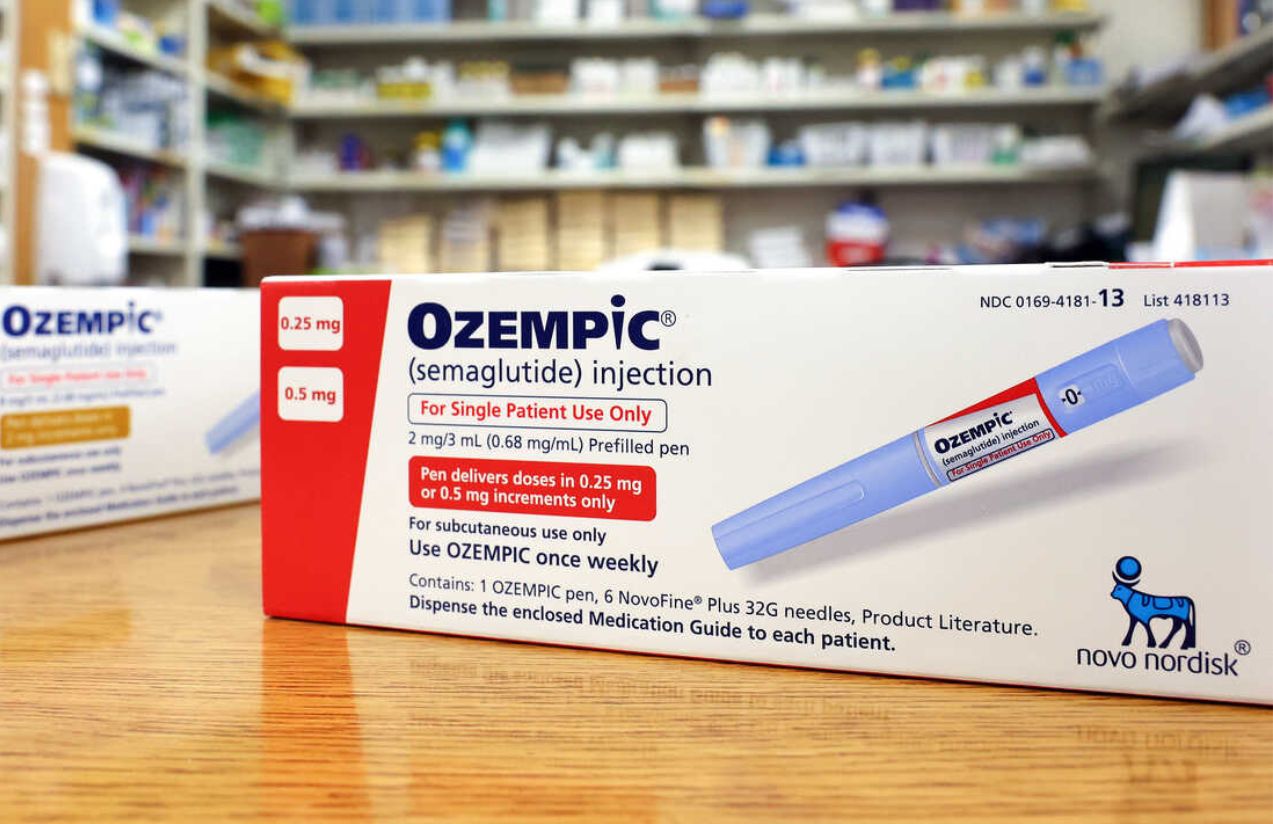Nowadays, pharmacists in São Paulo, Brazil’s largest city, immediately understand what thieves mean when they ask for “fridge medicines.”
They’re after Ozempic, Wegovy, and Saxenda, the popular weight-loss injections highly sought after by Brazilians but unaffordable for many in a country where body image obsession is rising alongside obesity.
Recently, a thief made off with five boxes of these drugs, which typically last a month and cost between 700 and 1,100 reais (roughly $120 to $190), while the average monthly salary hovers around $300.
Although Ozempic thefts are not exclusive to Brazil, incidents have been reported in pharmacies in Michigan and Santiago de Compostela, the country has become a hotbed for these crimes. São Paulo, in particular, has emerged as a key hub due to its economic strength, with affluent neighborhoods filled with pharmacies selling these medications to customers who can afford them. Today, thieves have no trouble finding buyers through WhatsApp and Facebook groups.
Pharmacy robberies have raised concerns among workers, prompting some stores to limit their stock of weight-loss drugs. Pedro Ivo Corrêa dos Santos, chief of police at São Paulo’s Criminal Investigation Department, confirmed that thefts of these medications are “undoubtedly a growing trend.”
Pharmacies are easy targets, the police chief noted. “Many operate 24/7, storing these medications in refrigerators without proper security, often only protected by the pharmacist on duty,” he explained.
A data analysis by The New York Times of São Paulo state records revealed a significant surge in thefts of Ozempic, Wegovy, and Saxenda over the past three years. Reported cases jumped from a single theft in 2022 to 39 incidents in 2024. The real numbers could be even higher since many robbery reports don’t specify the stolen medications.
Major pharmacy chains RD Saúde and Grupo DPS, both victims of these robberies, declined to comment, while many independent pharmacies have stopped keeping these products in stock altogether.
Wilson Martins, who manages an independent pharmacy in São Paulo, summed up the fear among pharmacists: “If you have Ozempic, you can’t work in peace.” To prevent theft, customers must now place orders in person and schedule a pickup appointment. And just in case, Martins, 72, keeps a leather-sheathed machete behind the counter.
The police chief also revealed that criminal gangs have been targeting Ozempic delivery trucks. Last year, authorities dismantled a ring that included employees of a transportation company. Drug manufacturers and distributors must report stolen products to Brazil’s regulatory agency, Anvisa. Their records show that thefts of injectable Ozempic doses jumped from 4,770 in 2023 to 8,220 in 2024.
This rise in thefts coincides with skyrocketing demand for these medications in Brazil, a country where appearance is highly valued but obesity is also on the rise. According to a Health Ministry study, obesity rates in Brazil’s largest cities nearly doubled from 12% in 2006 to almost 24% in 2023.
Ozempic’s popularity has surged so much that several Brazilian celebrities, including singers Luiza Possi, Wesley Safadão, and Jojo Todynho, have openly discussed using it. Even Rio de Janeiro’s mayor, Eduardo Paes, admitted to losing nearly 30 kilos thanks to the drug and has pledged to make it available for free.
In Brazil, Ozempic sales skyrocketed from $27.5 million in 2019 to $621.6 million in 2023, according to IQVIA data. Although the Brazilian market remains small compared to the U.S., where sales hit $30.3 billion in 2023, the growth has been remarkable.
Rodrigo Lima, chief operating officer at the pharmacy chain Ultrafarma, noted that Ozempic’s high price has fueled massive demand, giving rise to specialized criminal groups targeting the product.
Despite the ease of selling stolen weight-loss drugs via social media, criminals cannot guarantee their quality. Several São Paulo pharmacists have warned that leaving these medications unrefrigerated for just a few hours renders them useless.
“They carry them around in a trash bag,” said Andrea Lima, manager of a Drogaria São Paulo branch where a robbery was foiled in May 2024. “How long do they leave them sitting in a car trunk?”
However, Ozempic thieves may soon face a bigger challenge than law enforcement: the economy. In 2026, the patent for semaglutide—the active ingredient in Ozempic and Wegovy—will expire, potentially opening the door for generic versions and driving prices down.
For now, some pharmacists are turning to faith for protection. Elis Regina Peixoto, who runs a pharmacy in eastern São Paulo, expressed her hope with confidence: “In the name of Jesus, we will not be robbed.”




















